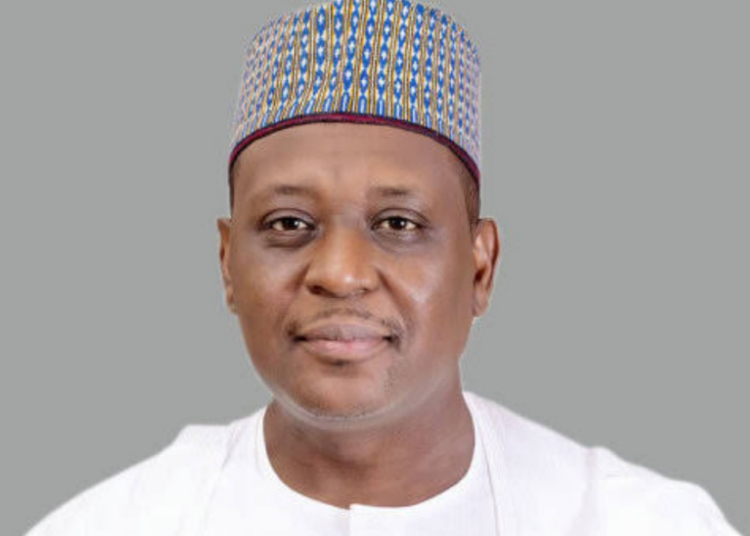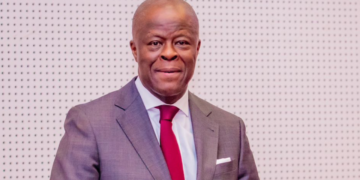Implementation of reforms in the sector has been slow. Key initiatives such as the universal health insurance and free maternal care, including free C-sections, have faced bureaucratic delays, leaving many Nigerians without the promised access to affordable care.
Underfunding, Budgetary Constraints
Despite repeated commitments to improve healthcare financing, Nigeria’s health sector continues to grapple with underfunding. The federal budgets for 2024 and 2025 reflect both incremental progress and enduring structural challenges.
Although there was a nominal increase in health sector funding, the percentage of the national budget allocated to health rose only marginally from 5.15 per cent in 2024 to 5.18 per cent in 2025. This suggests that the increase merely kept pace with the overall budget expansion, rather than signaling a genuine prioritisation of health.
Crucially, health spending remains well below the 15 per cent target set by the Abuja Declaration, reaffirming the country’s continued struggle to meet its own policy commitments. Beyond low allocations, delays in budget releases, inefficient disbursement processes and poor prioritisation of health needs further undermine the effectiveness of available funds, limiting tangible improvements in service delivery.
Brain Drain
The migration of Nigerian health professionals to countries such as the UK, Canada, Saudi Arabia and others has persisted and even accelerated under the present administration. Despite promises to address the crisis, no substantial policy shifts or retention incentives have materialised, exacerbating workforce shortages, particularly in public health institutions.
According to the minister of Health and Social Welfare, Prof Ali Pate, Nigeria currently has only about 55,000 licensed doctors serving a population of over 200 million, a stark ratio that underscores the severity of the problem. In the past five years alone, more than 16,000 doctors have left the country, while an estimated 42,000 nurses have emigrated in the last three years in search of better working conditions and remuneration abroad.
This has led to an uneven distribution of healthcare workers, with urban centres like Lagos and Abuja having higher concentrations of professionals compared to rural areas.
Poor Health Insurance Coverage
Three years after the passage of the National Health Insurance Authority (NHIA) Act in May 2022, Nigeria’s journey toward universal health coverage remains slow and uneven. The Act, which replaced the outdated National Health Insurance Scheme (NHIS) Act, introduced a more robust and compulsory framework designed to ensure health insurance for all Nigerians.
It also empowered state-level health insurance agencies to drive implementation and established the Vulnerable Group Fund to support coverage for the poorest and most-at-risk populations.
While the NHIA Act marked a critical policy shift, its promises have yet to translate into widespread impact. Coverage remains alarmingly low as only about 19.2 million Nigerians are currently enrolled in health insurance schemes nationwide.
Challenges such as limited awareness, fragmented state-level implementation, poor coordination and funding constraints continue to hinder efforts to reach rural and low-income groups. As a result, millions of Nigerians still rely on out-of-pocket payments for healthcare, pushing many into financial hardship and undermining the goal of equitable access to quality care.
High Cost Of Drugs
Despite the Executive Order signed by President Bola Tinubu in 2024 to boost local production of pharmaceuticals and reduce the cost of drugs, Nigerians continue to grapple with soaring medicine prices.
The order was hailed as a strategic move to strengthen the country’s healthcare system by removing tariffs, excise duties and VAT on pharmaceutical raw materials and equipment, measures intended to ease the cost-burden on local manufacturers and ultimately lower drug prices for consumers.
The minister of Health and Social Welfare had described the policy as transformative, highlighting its focus on increasing local production of key healthcare items such as active pharmaceutical ingredients (APIs), syringes, diagnostic kits and other critical materials.
Similarly, the director-general of the National Agency for Food and Drugs Administration and Control (NAFDAC), Prof Moji Adeyeye, praised the initiative for its potential to create jobs, stimulate the economy and reduce dependency on imported medicines.
The director-general of the Nigeria Natural Medicine Development Agency (NNMDA), Prof Martins Emeje, also emphasised its economic impact, noting that lifting tariff-related costs would make both imported inputs and locally manufactured drugs more affordable.
However, several months after the announcement of the policy, the expected relief has not materialised for ordinary Nigerians. Medicine prices remain high, with many unable to afford treatment for common ailments such as malaria, let alone chronic and non-communicable diseases like hypertension, diabetes and cancer.
Progress
Despite persistent challenges, Nigeria has made measurable strides toward achieving Universal Health Coverage (UHC) through several key initiatives. Prominent among them is the Basic Healthcare Provision Fund (BHCPF), established under the National Health Act of 2014. As a foundational pillar of Nigeria’s UHC efforts, the BHCPF supports primary healthcare improvements by funding infrastructure upgrades, recruiting frontline health workers, and providing free essential services to vulnerable populations.
In December 2023, the federal government unveiled the Nigeria Health Sector Renewal Investment Initiative (NHSRII), an ambitious roadmap aimed at transforming the health system. The initiative focuses on strengthening governance, expanding health insurance coverage, revitalising primary healthcare centres (PHCs), and mobilising investments through public-private partnerships to upgrade health infrastructure. The National Health Insurance Authority (NHIA) has also taken steps to widen insurance access for underserved groups under its expanded mandate.
Also, the Nigeria Customs Service (NCS) in March, announced a two-year exemption from import duty and Value Added Tax for essential raw materials used in pharmaceutical manufacturing. The exemption applies to APIs, excipients, reagents, packaging materials and components for long-lasting insecticidal nets and diagnostic kits.
Nigerians are hopeful as this represents a hopeful development, even though the success hinges on enforcement.





